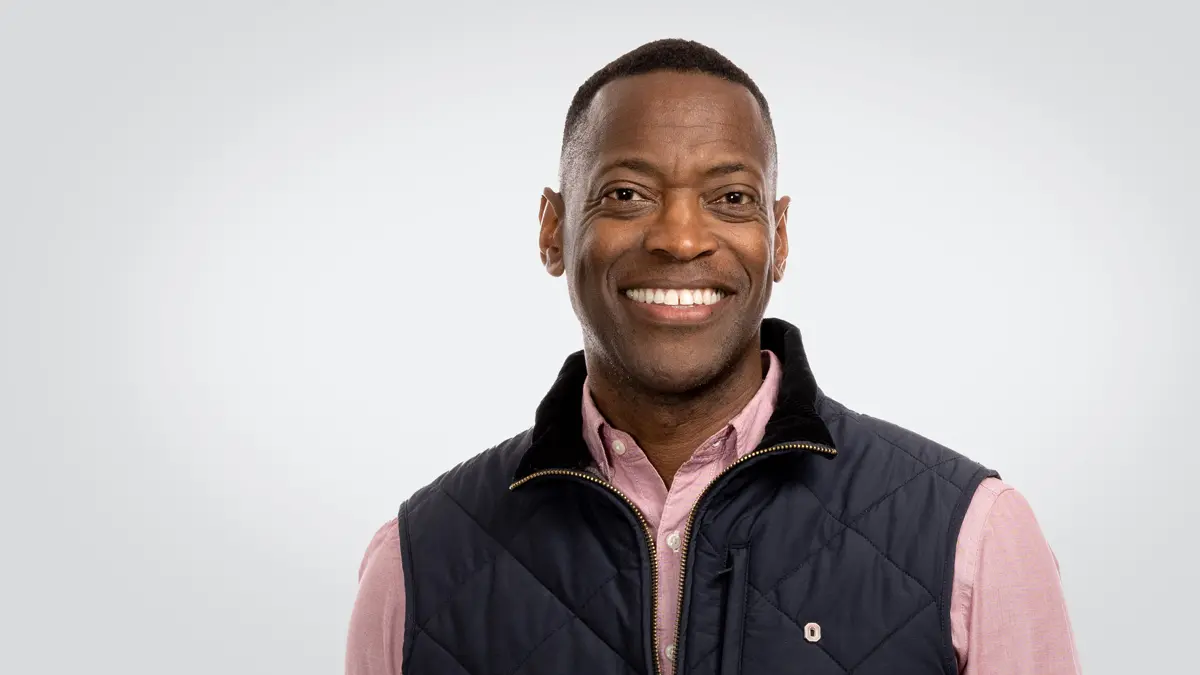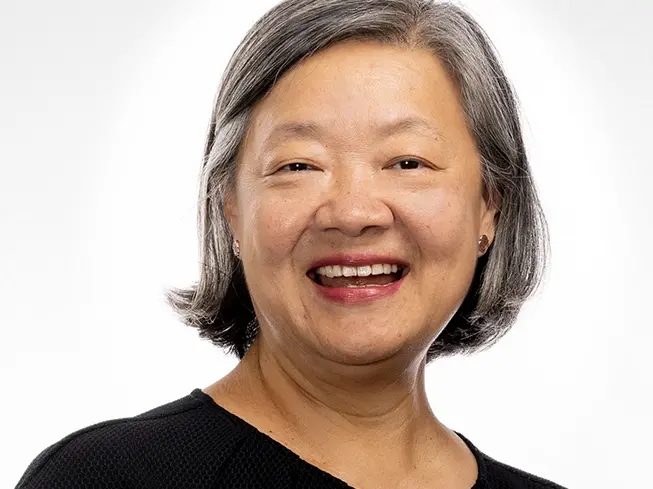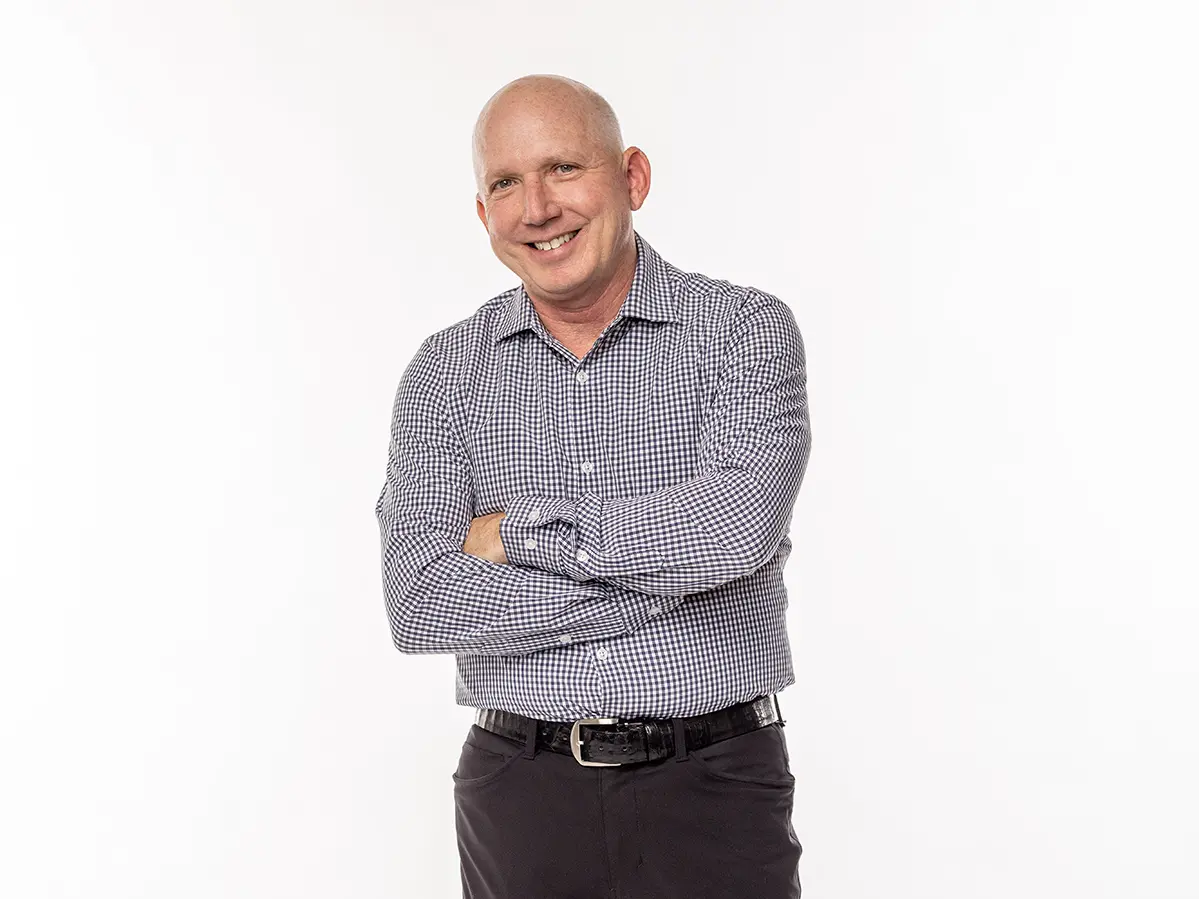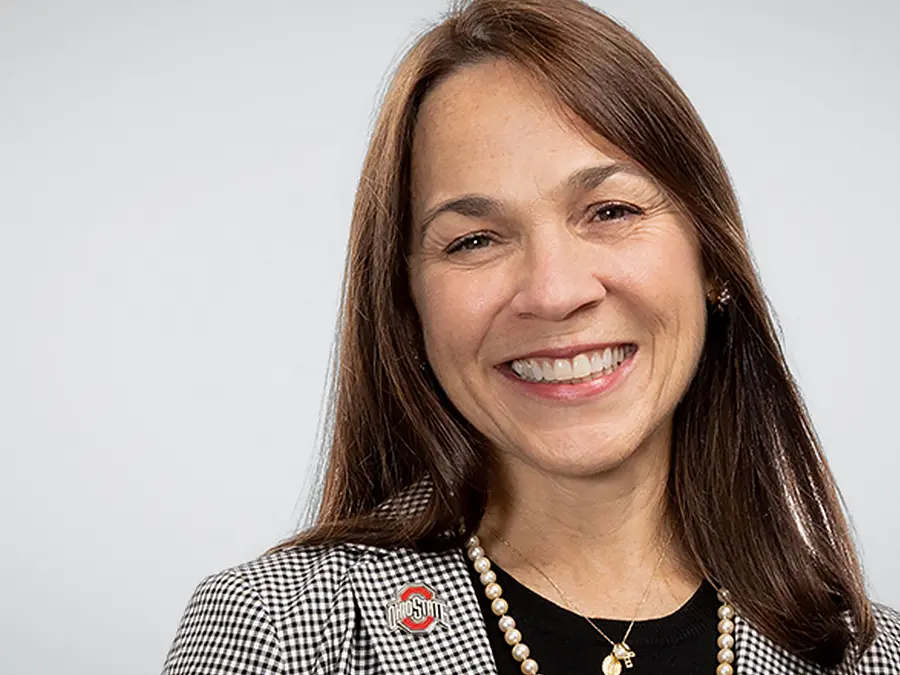Service and giving are family traditions for Ted Adams
The alumni board member models the values he wants to pass to his kids — giving of yourself to the causes and places you believe in.

Theodore “Ted” Adams, who works as an of counsel at Barnes & Thornburg LLP, serves as an alumni leader, on the University Senate’s Athletic Council and with boards and initiatives committed to helping cancer patients and boosting mental health. (Photo by Jodi Miller)
In his many volunteer leadership roles and throughout his career, Theodore “Ted” Adams ’91 JD, ’92 MA has lived up to values instilled in him at a young age. The Ohio State community is among the beneficiaries, as Adams has remained dedicated to his alma mater via The Ohio State University Alumni Association board, the Alumni Advisory Council and University Senate’s Athletic Council.
“Service above self,” Adams says. “This motto of the Rotarians was something my father — who, in addition to never missing a Rotary meeting, was a minister and teacher — passed on to me. Nonprofit and community-based work have always been a part of my DNA.”
From the start of his career as special assistant to the U.S. attorney for the Southern District of Ohio, through 11 years in government and 25 years in private enterprise, Adams has carried this service mindset. He now applies it to his role with the law firm of Barnes & Thornburg LLP, where he enjoys working on subjects he has touched over the past three decades, such as international trade, entrepreneurship, retail business and sports management.
-
How do you manage multiple volunteer commitments with a demanding career?
I’ve always had a complexity of activity around me. I leaned into managing against that backdrop. I found Ohio State to be large and very diverse in terms of academic subjects, human talent and the ever-changing nature of learning. That diversity helped me to become nimble and to function inside global companies, where I’ve spent a majority of my career. But it’s important to find a balance and to manage expectations. When I consider a volunteer opportunity, I first ask: Can I give this the attention it deserves?
My wife, Irene, sets a good example of being mindful of your commitments. Ohio State has been impactful for her, too. She is passionate about Pelotonia and co-captain for the Girls with Gears peloton. We’ve served together on Ohio State’s Stress, Trauma and Leadership Development Committee and the Columbus chapter of the Karen Wellington Foundation. At KWF, we put “fun on the calendar” for women with cancer, giving them a break from doctor appointments with a spa day or other experience. It’s really about supporting mental health and patient well-being.
-
What continues to inspire your involvement with the university?
Ohio State is multidimensional, and there is such a breadth of topics I care about that inspires me to plug in. I am so impressed by Gene Smith’s Circle of Care paradigm we wrap around student-athletes. It encompasses all that is meaningful to me. You have to be strong mentally to weather the challenges of your sport and in your life.
Ultimately, I want to continue serving the community and help my children value giving. It’s important to get involved. Roll up your sleeves. Don’t sit on the sidelines.
-
Tell us more about your support for mental health initiatives.
The Stress, Trauma And Resilience (STAR) Program in Ohio State’s Department of Psychiatry and Behavioral Health began as an endeavor by Dr. Steven Gabbe to build resilience for the medical staff and teams at the Wexner Medical Center. It has grown into a movement to embrace mental health as a part of our overall wellness scorecard and not a separate set of challenges to our physical well-being. Interest in this program got me involved with the Behavioral Health Development Board.
For me, my experience as an athlete was part of the motivation to learn more. Mental wellness and resilience are part and parcel of any athlete’s success. And as a parent, I witnessed firsthand how mental wellness is critical to the development of the next generation. It’s part of our everyday life — and Ohio State is at the forefront of research and care in this space.
-
What were some of your favorite experiences as an Ohio State student?
The moot court program and participating in a joint degree opportunity in sports management are at the top of the list. In moot court, you got to dive into and learn the different points of view of a problem, and this appealed to my curiosity.
Similarly, pursuing the sports management track came from following my curiosity to discover more. As a first-year, I heard third-year law students talking about being in graduate school and taking classes in different areas of campus, and it piqued my interest in pursuing sports management. I earned a fellowship to work in the athletic department at Columbus State Community College alongside two other sports management grads from Ohio State. I grew up playing sports, and learning the business of athletics was intriguing, too, and the operations and planning of large-scale events.


